Quixote Cooking Series: Haitian Black Rice (Diri ak Djon Djon)
This recipe was submitted by an anonymous supporter.
Quixote Center’s work in Haiti prioritizes systemic change. Our theory of change has three aspects:
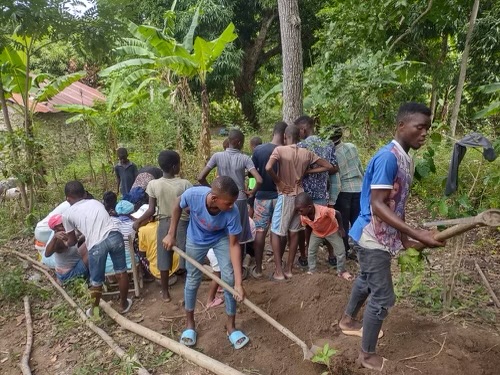
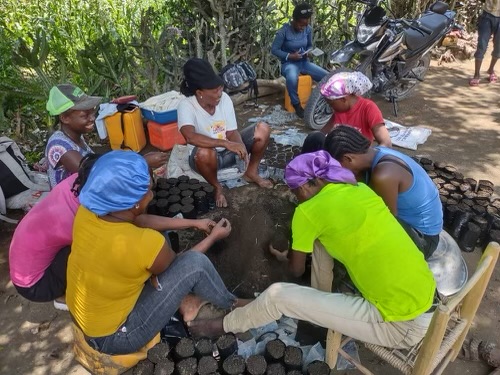
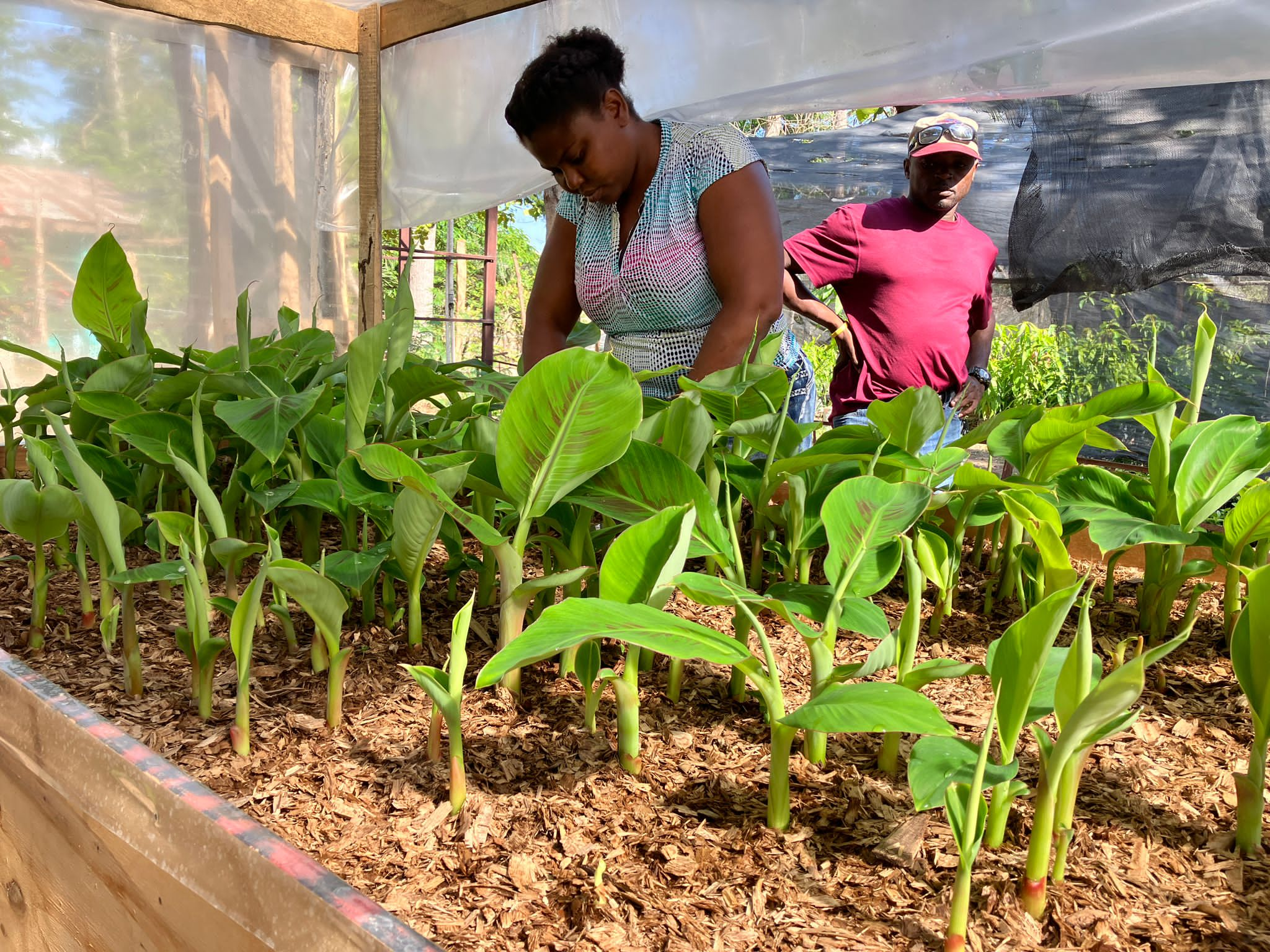
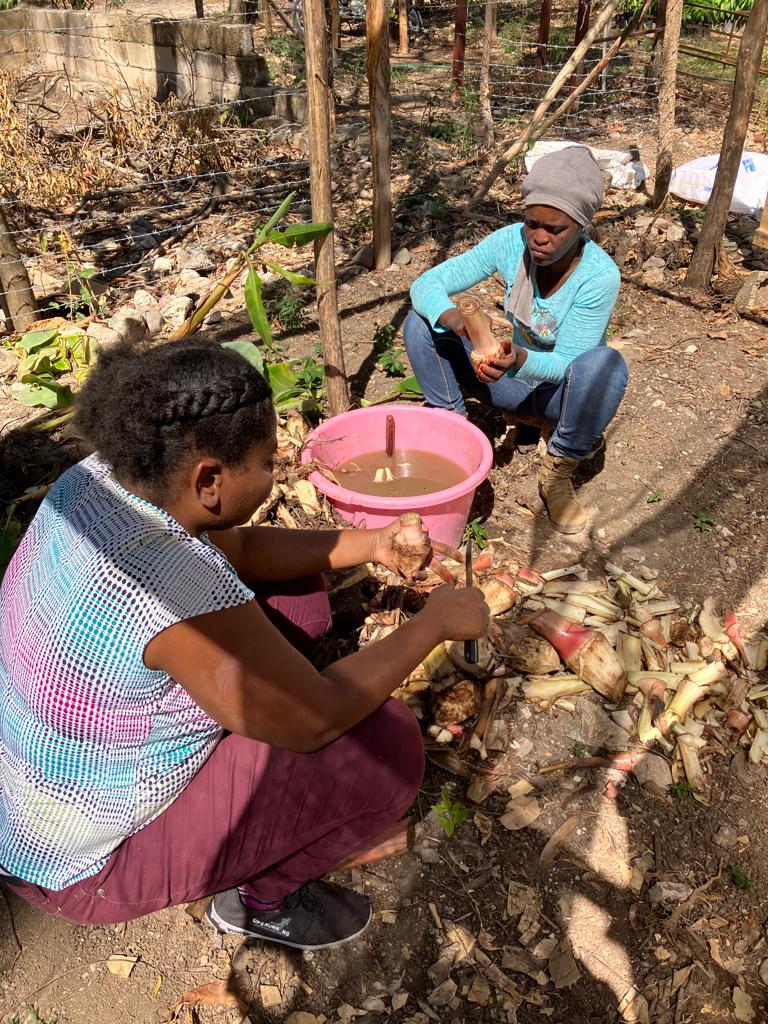
Quixote Center initially launched Haiti Reborn in 1991 during a period of renewal in Haiti, following the election of Aristide and the rise of Lavalas, a popular movement for democratic reform. The coup that ousted Aristide later that year led us to focus our efforts on speaking out against United States intervention in Haiti. US foreign policy as well as development aid still has enormous influence over Haiti and its future. US NGOs and churches also funnel significant funds into Haiti, leading many Haitians to dub their country “the republic of NGOs.”
The Quixote Center partners with Haitian organizations to support smallholder farmers to build sustainable livelihoods from agriculture and reforestation. The Jean Marie Vincent Formation Center located in Grepen, Haiti, is our primary partner in the north while in the south DCCH, the Christian Community Development in Haiti is our main partner in Gouin, Les Cayes.
There is a major humanitarian crisis that is worsening the medical, economic, housing, security and other social aspects of life in Gros Morne. The Quixote Center is working with our local partners to support vulnerable familiesin through our Emergency Campaign. You can read more and support the campaign HERE.
The Jean Marie Vincent Formation Center houses a tree nursery, a model instructional garden and multiple classrooms. These resources help farmers increase the yields of their farms, find new markets for their products, and gain access to the seeds and technology they need to succeed. The agronomy team from the JMV Center travel throughout the Arrondissement of Gros Morne to deliver workshops organized with a network of small farm associations, the Catholic Church’s Caritas network, and local schools. With our support, the JMV Center also maintains the Tet Mon model forest, a reforestation project that is the only one of its kind in the region. The JMV team holds formation sessions on reforestation and tree maintenance for local leaders, schoolchildren, and agronomy students.
The Social and Economic Recovery Program was launched in January 2025 as a scalable and replicable pilot project working with 100 rural families reaching up to 1000 people. These participating families are the protagonists of this program that aims to improve their income and food security while building resilience and eliminating dependence on outside assistance. Based on a 2023 community study, the project provides targeted investments in agroecological training, animal care, women empowerment through microloans and small business ventures. After collecting baseline data, the program will be tracking progress with the goal to increase household income by 20%, school attendance by 60%, crop yields by 60% and trade diversification among women.
Read the most recent report from our partners HERE.
This recipe was submitted by an anonymous supporter.
This Earth Day, we’re celebrating our partners at the Grepen Center in Gros Morne, Haiti, who
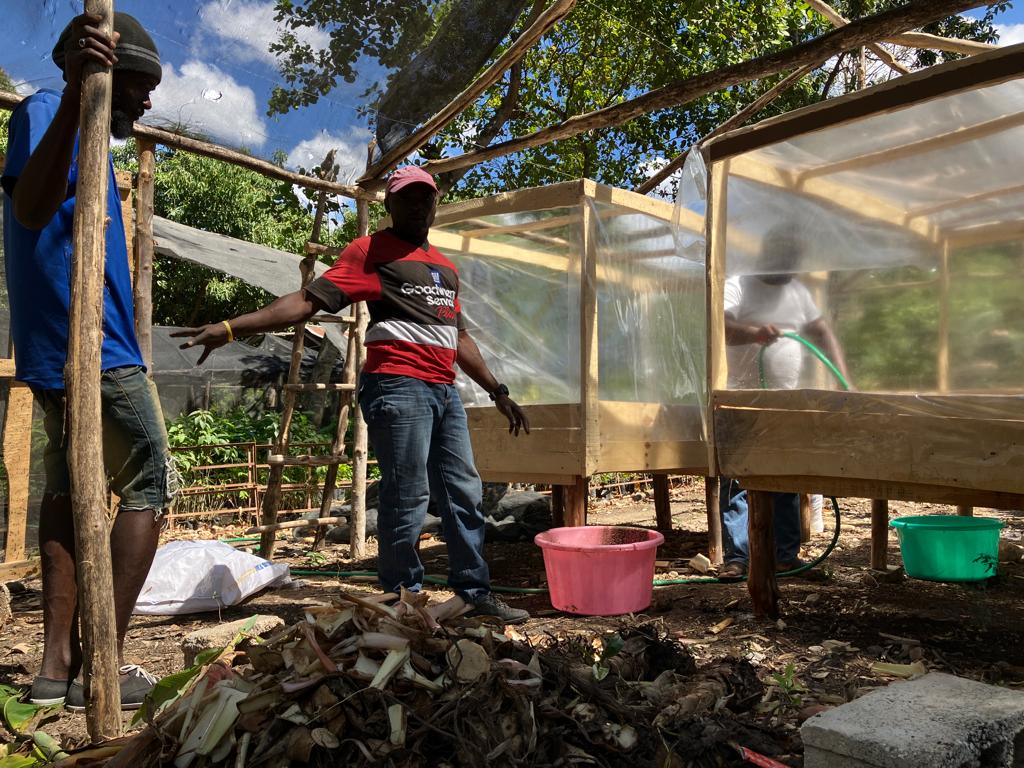
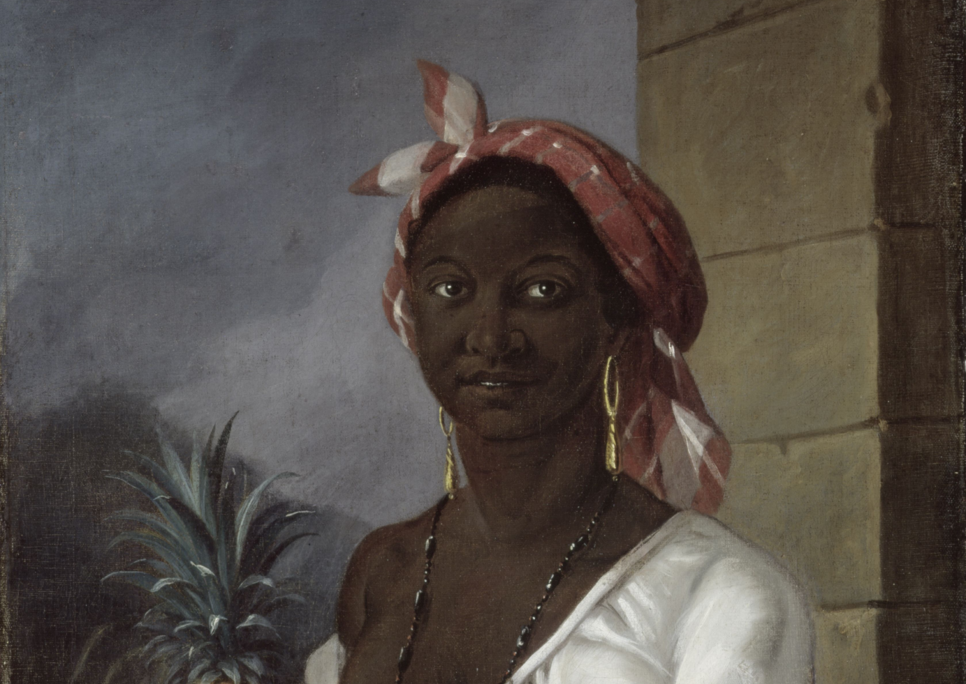
This contributor is a strong activist in their local Haitian community and has requested to remain anonymous.
“I come as one, but I stand as 10,000.”
By Kim Lamberty
There is a reason that Quixote Center supports small-scale farmers in Haiti.
By Kim Lamberty
It’s hard to find good news from Haiti. With increasing gang violence, food insecurity, and environmental degradation, families and communities are taking desperate measures. The situation is the most challenging in recent memory.
On December 13th, the Biden administration conducted yet another removal flight to Haiti, carrying an estimated 26 people.
The Biden administration extended and redesignated Temporary Protected States (TPS) for Haiti on Monday, December 5, 2022. Secretary of Homeland Security, Alejandro Mayorkas made the decision after the administration received pressure from US advocates and members of Congress.
Eleven women merchants died after the truck they were in toppled while attempting to ford the Trois Rivieres just outside of Gros Morne, Haiti on the evening of November 4, 2022. Nine women died in the accident; 2 more have died in the days since.
The armed group, the G-9 Families and Allies, seizing control of the fuel terminal at Varreux has dominated news from Haiti for the past two months. The group’s blockade of fuel entering the country impacted food delivery and medical supply chains just as cholera was presenting again. The blockade, and apparent inability of Haiti’s police to deal with the situation, became the chief talking point for those seeking an armed intervention. Over the last six days the situation has changed.
Last week we reported on the a decision by the USDA to block the importation of Haitian mangos because Haitian based inspectors were placed on leave due to security considerations. Below is a reflection on what this decision means for Gros Morne from Guy Marie Garçon, the chief agronomist & agronomy team coordinator for Karitas Pawas Lachandlè at the Jean Marie Vincent Formation Center.